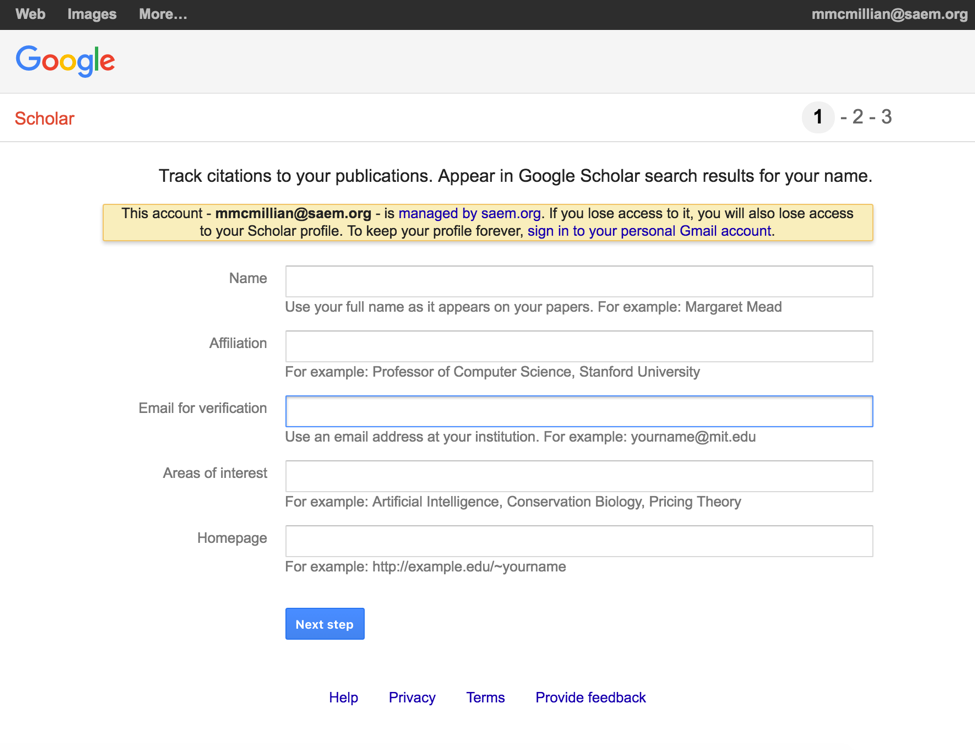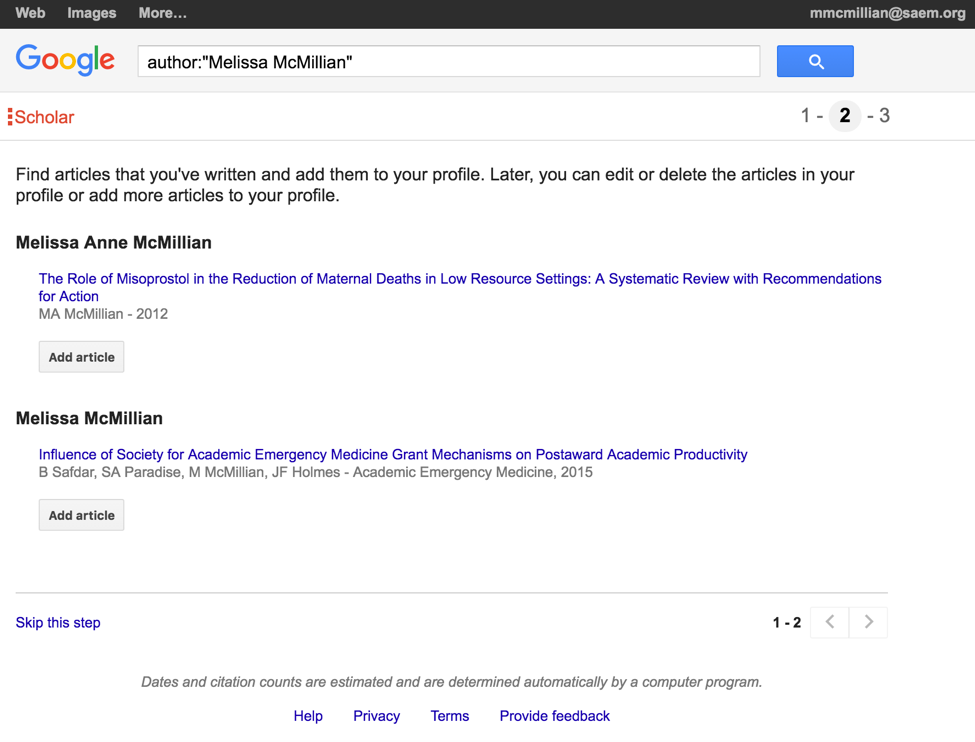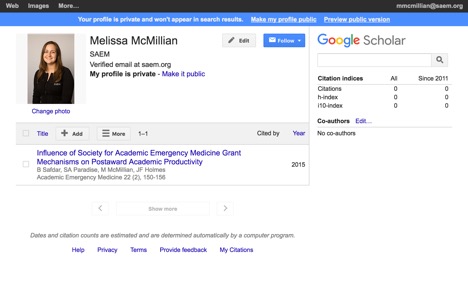H-Index Calculator
Scientists and scholars can measure the impact and relevance of their scientific output by calculating their h-index score. The h-index is an author-level metric based on a person’s number of papers and citation number. While the h-index is not the only indicator of a researcher’s success, it can be a helpful factor in defining one’s impact. Below is a simple way to calculate your h-index score through Google Scholar.=
Calculating your citations and H-index at Scholar.google.com
- ISI and SCOPUS both allow you to check and calculate your citations and H-index. But both databases are limited to peer-reviewed journals only. Books, book chapters and reports are not covered. Scholar.google is changing this. You can check your Google citations on the following way. First, go to the website of http://scholar.google.com:
- Second, sign in with your Google email address by clicking on the sign-in button (if you do not yet have an account, you can create one.
- Create a Google Scholar profile by clicking on “My Citations” and filling out your profile:
- Search for your publications and add them to your list. Please note that your name may be spelled differently (e.g. Melissa McMillian, M McMillian or MA McMillian). Be sure that you include all options.
- Then check the list by removing publications that are not yours, merging publications that are listed more than once, edit publications etc. This is quite straight forward and does not take too much time. Save the final list.
- Finally, create your profile:




You can choose to make your profile private or viewable by the public. If you select a public profile, everyone can view and link your publications which gives you more exposure. Add a profile picture and update the information to complete your profile. You can also add a link to your personal webpage at your department. This is how the final page looks:

Google searches the major publication sources and Google Books but also includes all the items listed in institutional yield of the library. Getting an idea of you H-index is easier in Google than in ISI or SCOPUS (and often higher as well).
